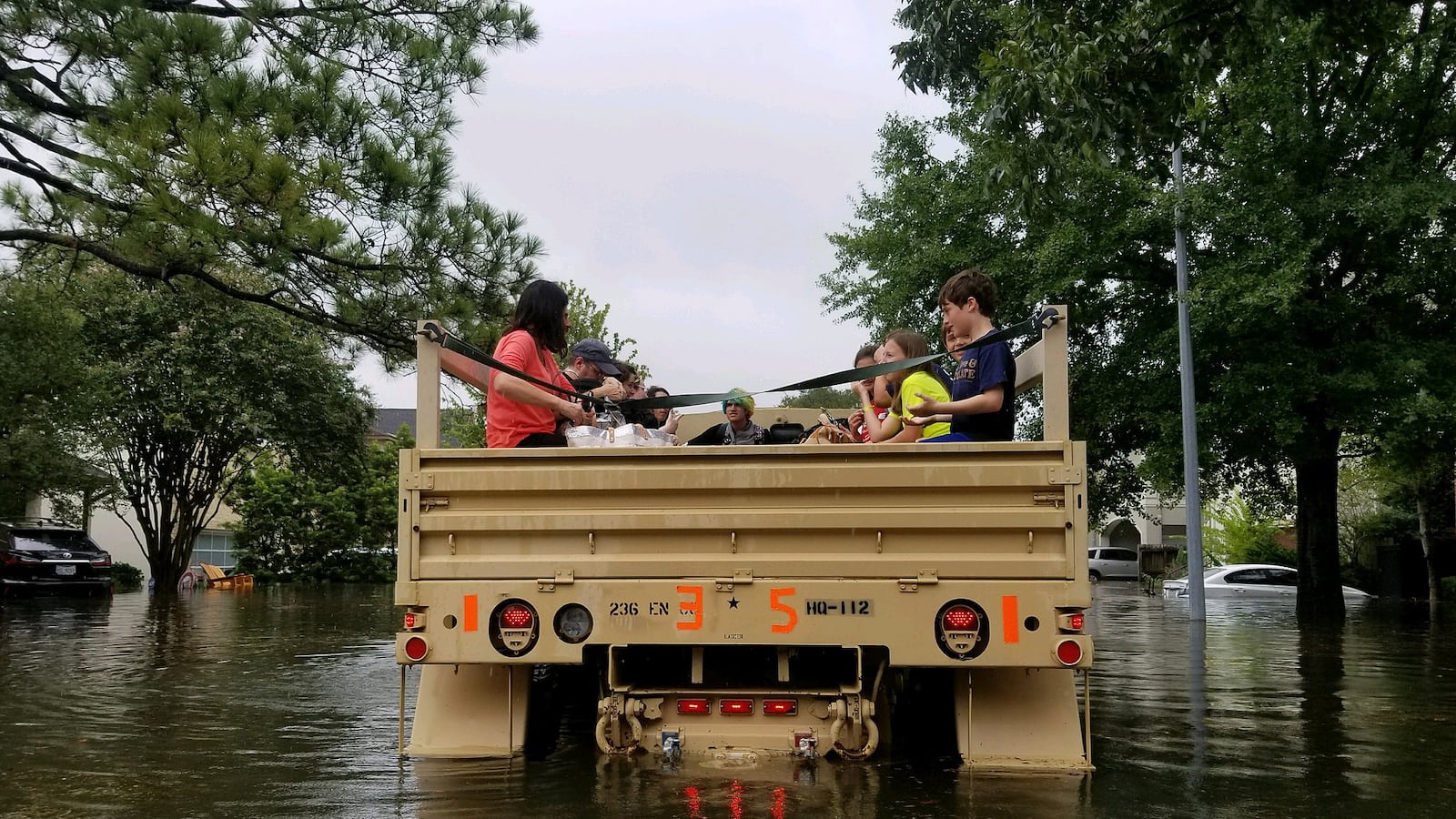Hurricane Harvey has upended so many things here in Houston, where I am starting my third year as a teacher. One of them is the lesson I am planning for the first day of school — as soon as it arrives.

This upheaval is nothing compared to what people across the city have faced, including my students, who have been sending me photos of evacuation boats going past their houses.
But it is fundamental to the task of being a teacher at a time of crisis. As an A.P. Human Geography teacher, my job is to help students make connections between the geography concepts we are learning in class and their real lives: Does Houston look like the models of urban development we study? Does their family history include a migration?
Before the storm, my thinking went like this: I am white and was born in England and most of my students are Hispanic, many with parents who were born in other countries. I was excited for us to share and compare our different stories. My students last year were shocked and fascinated when they discovered that my white, middle-aged father who is a university professor was applying for a green card, just as many of their family members were.
Now, Hurricane Harvey has underlined for me the importance of those real-world connections. As I looked at the photos from my students, I was struck by how geography concepts can affect us in very real — even life-threatening — ways.
I had planned to teach a lesson at the end of the year about how urbanization affects the environment. The lesson looks at how urbanization can exacerbate flooding: for example, how paving over grassy areas can increase the speed with which rain reaches the bayous, causing the water levels to rise faster. I would then have students evaluate different policies cities can adopt to mitigate that risk, such as encouraging the building on brownfield rather than greenfield sites and passing laws to protect farmland — options that have significant benefits but also significant costs.
I have decided to move this lesson up in the curriculum and teach it when we have school again. School is scheduled to start again on Tuesday, though at this stage everything is provisional, as each hour we find out about more families that have had their homes destroyed by the rising waters. It is still unclear how all our staff, let alone students, will get to school.
I am worried that the lesson could re-traumatize students who have experienced so much trauma in the past few days. I know I will need to make an active effort to make students feel comfortable stepping into the hall if they are feeling overwhelmed. However, my experiences with the recent presidential election make me think that this lesson is exactly what some students might need.
After the election, many students were genuinely confused about what had happened. One question in particular was on their minds: How you can you win the popular vote but not the election? We talked through the Electoral College together, and having clarity about what had happened and why it happened seemed to give them a firmer foundation to build on as they processed their emotions. I am hopeful that teaching about flooding will help ground them in a similar way.
This lesson about flooding was once simply another lesson in the curriculum, but now it has taken on a new urgency. In moments of disaster, it is easy to feel powerless; I certainly could not help the people I saw posting on Facebook that they were been on hold with 911 for hours while standing on their roofs.
Yet teachers have a unique power — the power to shape the minds of future generations to solve the problems that we face. Houston’s location means that it will always be susceptible to flooding. But by teaching about the flood I hope I can play a small role in helping our city avoid repeating some of the tragic scenes I witnessed this week.
Alex McNaughton teaches history and geography at YES Prep Southeast in Houston.
Looking to help? YES Prep is collecting donations to support its students and their families. Houston ISD and KIPP Houston are also soliciting donations for their students.
About our First Person series:
First Person is where Chalkbeat features personal essays by educators, students, parents, and others trying to improve public education. Read our submission guidelines here.


